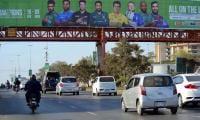ISLAMABAD: Pakistan’s neglected farm sector is facing a crisis-like situation as produce of different crops have witnessed lowest ever surge in prices in domestic market at a time when cost of their inputs is skyrocketing.
The prices of tomato, potato, onion and other farm produce have witnessed lowest ebb after which the urban class is getting cheaper products, but it’s costing heavily to the farmers living in rural areas as they are unable to recover cost of their production.
Actually the middleman is earning money as they are getting farm produce at cheapest rates and selling in urban areas at higher rates.
The food prices have become flat exactly at zero percent increase in December 2018 compared to the same month of the previous year, making it quite difficult for the neglected agriculture sector farmers to even recover cost of their inputs as prices of diesel, fertiliser and pesticides have gone up enormously especially in last few months.
According to official data of the Pakistan Bureau of Statistics (PBS) as well as official documents, food-based prices in December 2018 witnessed 0.05 percent increase compared to the same month of 2017.
The food prices touched almost zero percent increase, making it difficult for farmers to recover their cost.
“The crisis like situation is brewing up for agriculture sector in Pakistan where prices of their produce have witnessed lowest ebb despite the fact that the cost of production has gone up enormously,” official sources told The News. The food prices witnessed negative 1.4 percent in December 2018 in compared to November 2018. The sharp decline in prices of farm sector has started impacting overall economic activities in rural areas as sale of motorcycles witnessed major decline in recent months of the current fiscal year.
In the last cabinet meeting when briefing was given on the CPI-based inflation, two federal ministers raised objections over the prices data arguing that it did not match with the ground realities.
When minister for planning showed that the inflation was impacting higher quintile group severely then it was mentioned that people having more income were affected by higher increase in prices of different commodities and services on which the PBS captured data of these products to gauge inflationary pressures.
In first six months period, from July-December 2018-19, with average CPI-based inflation of 6.2 percent, the transport prices witnessed highest surge of 17.7 percent on average against 3.7 percent in the same period of the last financial year 2017-18. Secondly, the education expenses went up by 12.1 percent in first half of the current fiscal compared to 11.1 percent in the same period of the last financial year.
Contrary to education, the health inflation decreased and witnessed surge of 7.4 percent in July-Dec period of the current fiscal year against 11.4 percent in the same period of the last year.
The CPI-based inflation on recreation and culture witnessed upward trends as its prices have gone up by 7.7 percent in July-Dec period of the current fiscal against 0.4 percent surge recorded in same period of the last financial year.
Federal govt seeks explanation from Nepra over unauthorised salary hike
Trump says sectoral tariffs on pharmaceuticals and semiconductor chips will likely start at 25% in April
Survey finds 55% of businesses satisfied with current performance, 61% hopeful for future
Indian PM says he has "very productive meeting" with Qatar's Emir in New Delhi
KSE-100 Index surges by 1,344.94 points, or 1.2%, to close at 113,088.47
"We remain grateful for support that we have received from KSA," says finance minister







